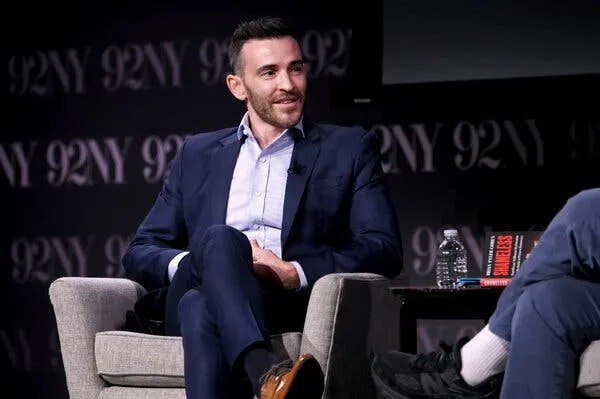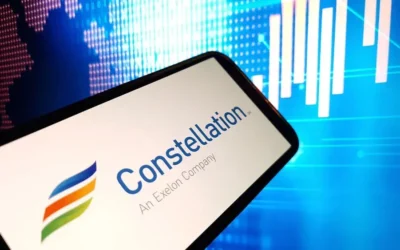Democrats’ Dilemma: The Quest for a Left-Wing Joe Rogan in the Wake of 2024
In recent years, the podcasting landscape has evolved tremendously, with figures like Joe Rogan becoming cultural icons. His meteoric rise has undoubtedly drawn the attention of media pundits and political strategists alike. With his massive following, Rogan’s platform serves as a *well of influence*, often favoring right-leaning narratives that resonate strongly with his base. Amidst the aftermath of the 2024 election, the Democratic Party is now grappling with how best to counteract this G.O.P. clout that seems omnipresent online.
The Appeal of Joe Rogan
Joe Rogan’s appeal lies not just in his ability to host a diverse array of guests but also in how he engages his audience. By allowing open dialogue, he fosters an environment where self-proclaimed experts, celebrities, and everyday folks share their thoughts. This has amassed a *strengthened community*, one that is increasingly wary of mainstream media narratives. His podcast has become a haven for free speech enthusiasts, and his willingness to entertain contrarian views has further endeared him to his audience.
Democratic Strategies: Throwing Money at the Problem
In the wake of the 2024 election, many in the Democratic Party have recognized the need for a strategic overhaul in addressing the online dominance wielded by figures like Rogan. The party’s response has been to invest heavily in digital platforms—spending on advertisements, creating content, and attempting to establish left-leaning influencers. Yet, pouring funds into this effort may not produce the desired outcome. As the saying goes, *money can’t buy happiness*—and in this case, it may not be able to construct an authentic voice either.
Authenticity Over Affluence
To successfully counterbalance the mega influencers on the right, Democrats must identify the qualities that make figures like Rogan resonate with listeners. It’s not merely his celebrity status or monetary backing; it’s his genuine curiosity and approachable style. People crave authenticity, seeking connection rather than a one-sided stream of opposition politics. Democratic strategies focusing solely on dollars—as opposed to building *authentic relationships* with diverse groups—might fall flat.
Investing in the Next Joe Rogan
As per reports, there is a strong push within the party to find the “next Joe Rogan” of the left after the 2024 election defeat. This new figure must embody the qualities that attract listeners—humility, honesty, and approachability. Political strategists are brainstorming ideas for securing the support of promising voices that can bridge the gap and create impactful dialogue.
The Feasibility of Creating a Modern Icon
Nonetheless, many question whether this goal is inherently feasible. After all, public figures and their appeal evolve naturally and cannot be manufactured with cash alone. The search for a left-wing podcaster or influencer who embodies the spirit of a more open-minded discourse requires a long-term commitment to *grassroots engagement* over flashy marketing campaigns. It’s vital for the Democratic Party to understand that the left cannot simply replicate the right’s successful model; it must create its own.
Broaden the Message
Furthermore, the message needs to evolve beyond mere opposition to Republican ideologies. Democrats must present *innovative solutions* that address the daily concerns of Americans. A focus on relatable issues—like education, public health, and economic disparity—could stimulate engaging discussions that resonate with varying audiences. Through authentic storytelling, Republicans have shown how powerful personal narratives can be; the left must redeem its narrative as well.
Fostering Community Engagement
The left needs to focus on **community engagement** at a grassroots level. Emphasizing the importance of local issues and concerns will lead to a revitalization of the party’s brand. Engaging community members in discussions can provide valuable insights that would allow influencers to connect with a broader audience genuinely. *Local heroes*, activists, and community leaders can serve as representatives who strengthen the political discourse without overselling their affiliations.
The Role of Grassroots Movements
Grassroots movements have historically transformed political landscapes. By energizing local communities and tapping into their authentic stories, Democratic strategists can identify and empower new voices that resonate beyond what high-profile endorsements and paid advertisements can achieve. Stories of resilience, ambition, and hope can often have a more substantial impact than heavily funded campaigns.
Building Networks for Influence
One potential avenue for Democrats to explore is creating networks for influencers that disseminate information authentically. These *social circles* could fuel podcast discussions, online forums, and community gatherings that benefit from diverse viewpoints while maintaining a common goal of progressiveness. Creating platforms for everyday voices within the Democratic sphere will be paramount to reclaiming influence in a crowded digital space.
The Impacts of Social Media
The role of social media cannot be overstated. While figures like Rogan predominantly control podcasting, platforms like TikTok and Instagram are powering a new wave of influencers. Both sides of the political spectrum have exploited these platforms to engage younger voters. Democrats should *strategize* to harness these contemporary media tools effectively and authentically, catering content that mobilizes and involves younger audiences in dialogues around policies that impact their lives directly.
Looking Forward
In conclusion, as Democrats seek to navigate the changing tides of political engagement amid the social media era, the emphasis should not rest solely on financial expenditures. Instead, they must cultivate authentic voices within the party, broaden their political messages, and actively engage communities to foster genuine relationships. This multi-faceted approach may yield a more sustainable shift in online engagement in the long term and could help to mitigate the clout wielded by the right-wing figures, including Joe Rogan, who currently dominate the digital landscape.
In a rapidly evolving political context, *the challenge remains steadfast*: can Democrats deploy their resources effectively enough to build connections that matter? Time will tell, but the investment in true authenticity and community could prove to be the Democrats’ secret weapon in winning the listening ears of the American public.







